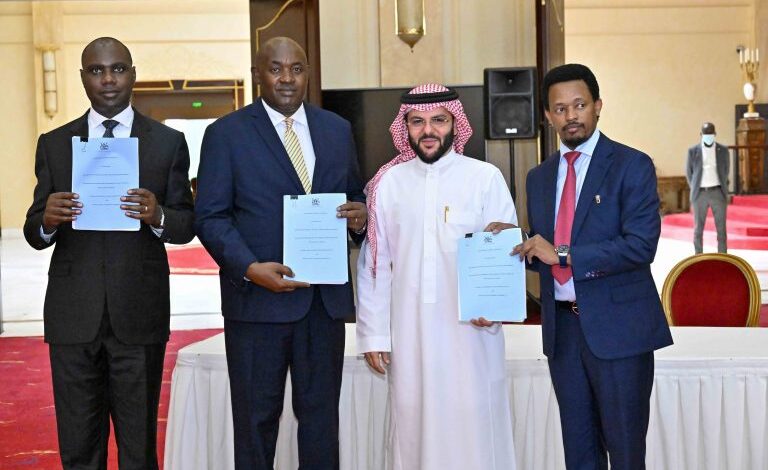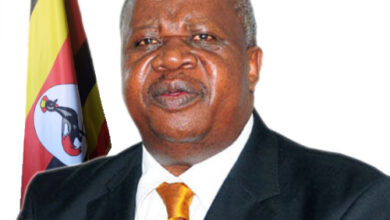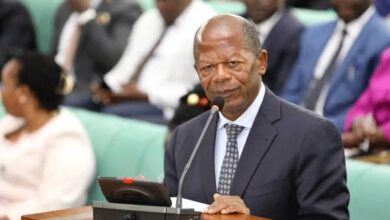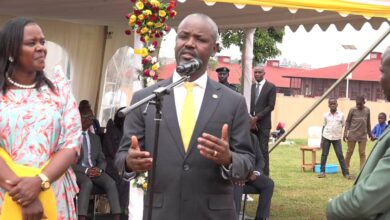Gov’t Risks Losing Millions as World Bank Flags RCC Irregularities

A confidential letter from the World Bank has raised red flags over Uganda’s handling of the National Backbone Infrastructure (NBI) project, warning of a potential breach of the country’s financing agreement and possible funding cuts.
The letter, addressed to the Ministry of Finance, expresses serious concerns over the government’s decision to transfer NBI operations to Uganda Telecommunications Corporation Limited (UTCL) and its controversial private partner, Rowad Capital Commercial Broker LLC (RCC).
The World Bank has demanded urgent clarification on the ownership and governance of NBI, cautioning that the shift to UTCL—where RCC holds a majority stake—undermines competition, affordability, and service quality.
Government’s Silence on NITA-U Merger Raises Alarm
At the heart of the World Bank’s concerns is the unexplained delay in the merger of the National Information Technology Authority-Uganda (NITA-U) with the Ministry of ICT & National Guidance (MoICT&NG).
The merger was a key component of Uganda’s agreement with the Bank under the Uganda Digital Acceleration Project (UDAP-GovNet, P171305), which aims to improve digital infrastructure and connectivity.
Despite repeated follow-ups, the Bank is yet to receive an official response from the government regarding this transition.
Failure to provide clarity on the NITA-U merger could jeopardize compliance with the financing agreement, putting the project’s future at risk.
RCC’s Involvement Raises More Questions Than Answers
A major point of contention is the government’s decision to hand over NBI operations to UTCL, a state-owned telecom company now in partnership with RCC.
According to the World Bank, the financing agreement was clear that NBI should be managed by a competitively selected private sector company under open-access principles.
However, the government’s move to transfer control to UTCL, where RCC holds significant influence, directly contradicts this arrangement.
The letter questions whether RCC’s involvement was subjected to a transparent selection process and whether the new arrangement guarantees fair pricing, open competition, and reliable service delivery.
This is particularly concerning given RCC’s track record of alleged substandard work, as highlighted in other state projects, including its handling of the NBI expansion.
Ownership Mystery: Who Really Controls RCC?
Further scrutiny into RCC reveals discrepancies in its claimed identity. While the company presents itself as a Dubai-based investment group, investigations show that its entire board is composed of Ugandan nationals.
A letter dated February 20, 2025, appointing RCC’s representatives to the UTCL board lists only Ugandan names, including Ms. Daphne Okama, Mr. Mugwanya Dennis Kaggwa, Mr. Wilber Nuwamanya, and Mr. Edward Mugerwa.
This revelation raises critical questions: Is RCC truly a foreign investor, or is it a front for well-connected Ugandans using offshore registration to bypass procurement regulations?
The World Bank’s demand for a copy of the Memorandum of Understanding (MoU) between the government and RCC suggests a deeper investigation into the firm’s legitimacy.
Risk of Losing Funding as World Bank Considers Alternatives
If Uganda fails to justify its handling of the NBI project, the World Bank has outlined several possible actions, including:
- Reopening a competitive tender process to select a qualified private sector company for NBI management.
- Reallocating project funds to mobile broadband and last-mile connectivity instead of backbone infrastructure.
- Canceling further investment in the NBI project if governance concerns remain unresolved.




